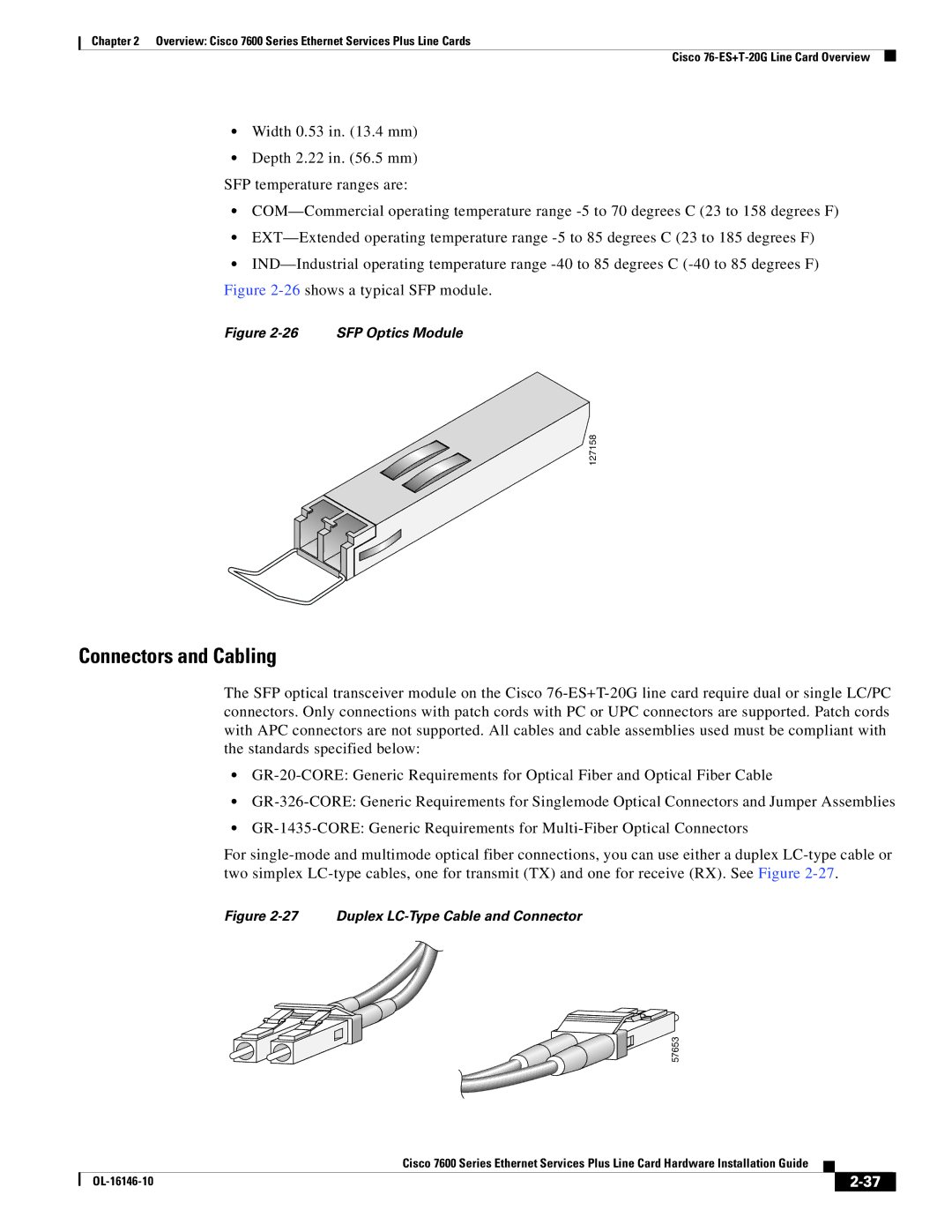OL-16146-10 specifications
Cisco Systems OL-16146-10 is a powerful and versatile member of the Cisco networking product line, specifically designed to serve in various networking scenarios, including enterprise environments. This model is tailored to address the growing demands for reliable connectivity, security, and performance, making it an essential asset for modern organizations that rely on seamless communication and robust data transfer.One of the main features of the OL-16146-10 is its exceptional scalability. The device supports a wide range of configurations, allowing businesses to tailor their network solutions according to specific needs. This flexibility makes it suitable for both small businesses and large-scale enterprises.
In addition to scalability, the OL-16146-10 incorporates advanced security features, which are critical in today’s cyber-threat landscape. Built-in security protocols safeguard the network against unauthorized access and cyberattacks, ensuring that sensitive data remains protected. The device offers features like intrusion prevention systems (IPS) and integrated virtual private network (VPN) capabilities, allowing secure remote access for employees without compromising internal security measures.
Equipped with cutting-edge technologies, the OL-16146-10 supports high-speed data transfer and optimal performance even under heavy traffic loads. The device takes advantage of Cisco’s innovative routing and switching capabilities, allowing it to efficiently manage multiple data streams. This ensures minimal latency and high throughput, which is essential for applications that require real-time communication, such as VoIP and video conferencing.
Moreover, the OL-16146-10 incorporates advanced quality of service (QoS) features, which enable prioritization of critical applications over less essential traffic. This guarantees that mission-critical applications receive the bandwidth they need, contributing to consistent performance across the network.
Management and monitoring are simplified with the OL-16146-10 due to its support for Cisco’s renowned network management tools. Administrators can efficiently configure and monitor the network, troubleshoot issues, and optimize performance through intuitive interfaces.
In summary, the Cisco Systems OL-16146-10 is characterized by its scalability, robust security features, high performance, advanced QoS capabilities, and user-friendly management tools. These characteristics make it a preferred choice for organizations looking to enhance their networking infrastructure and meet the evolving demands of the digital era.

